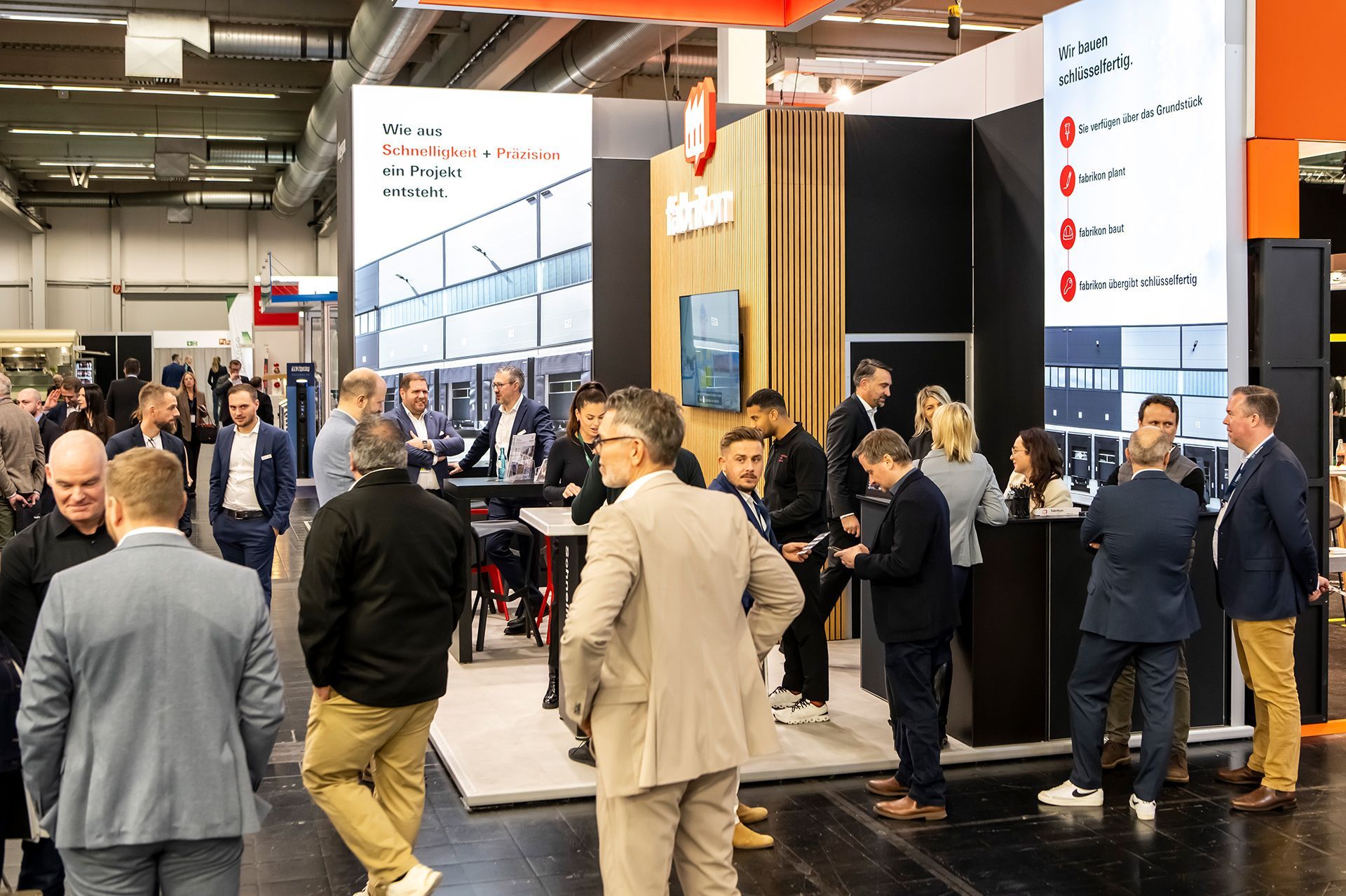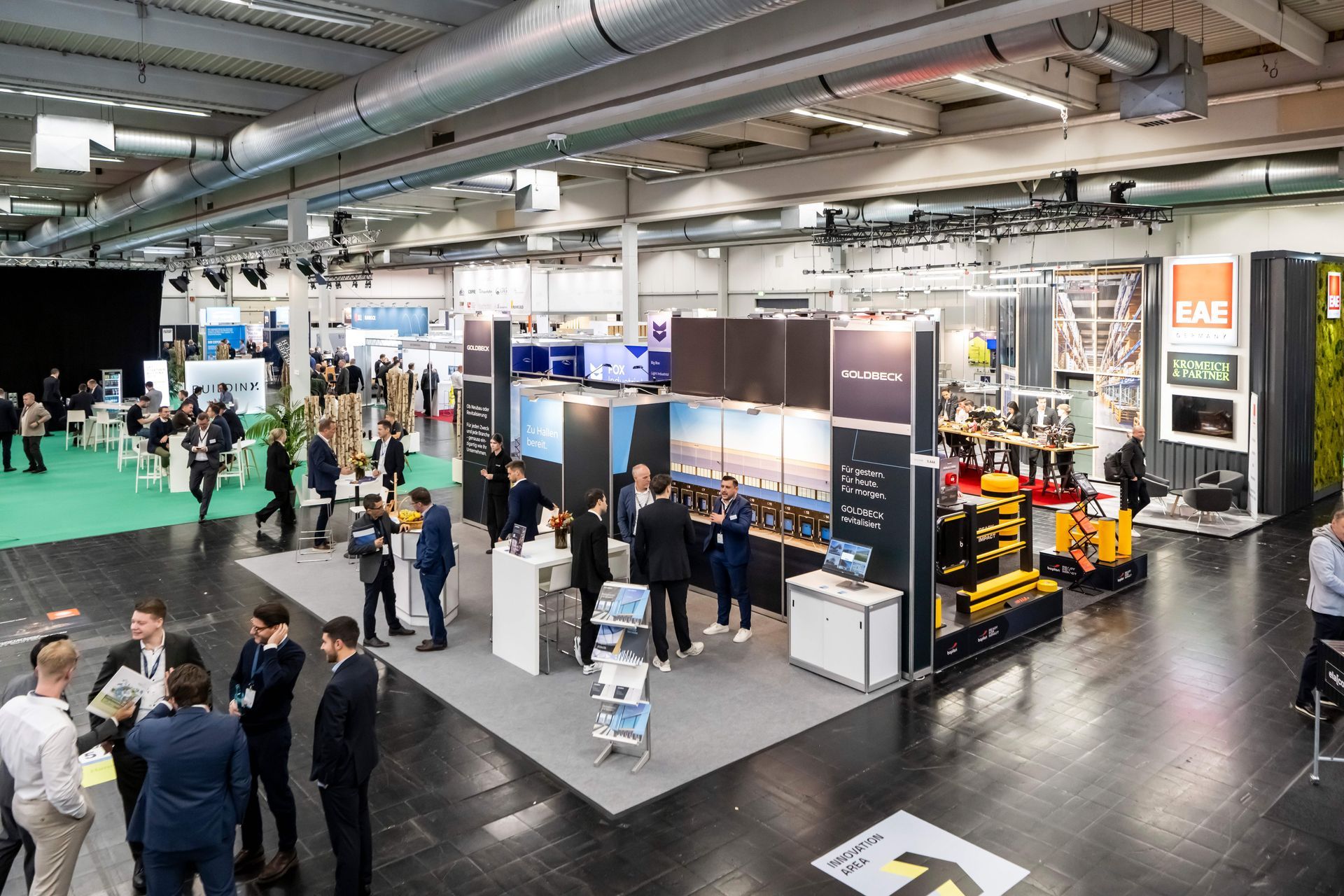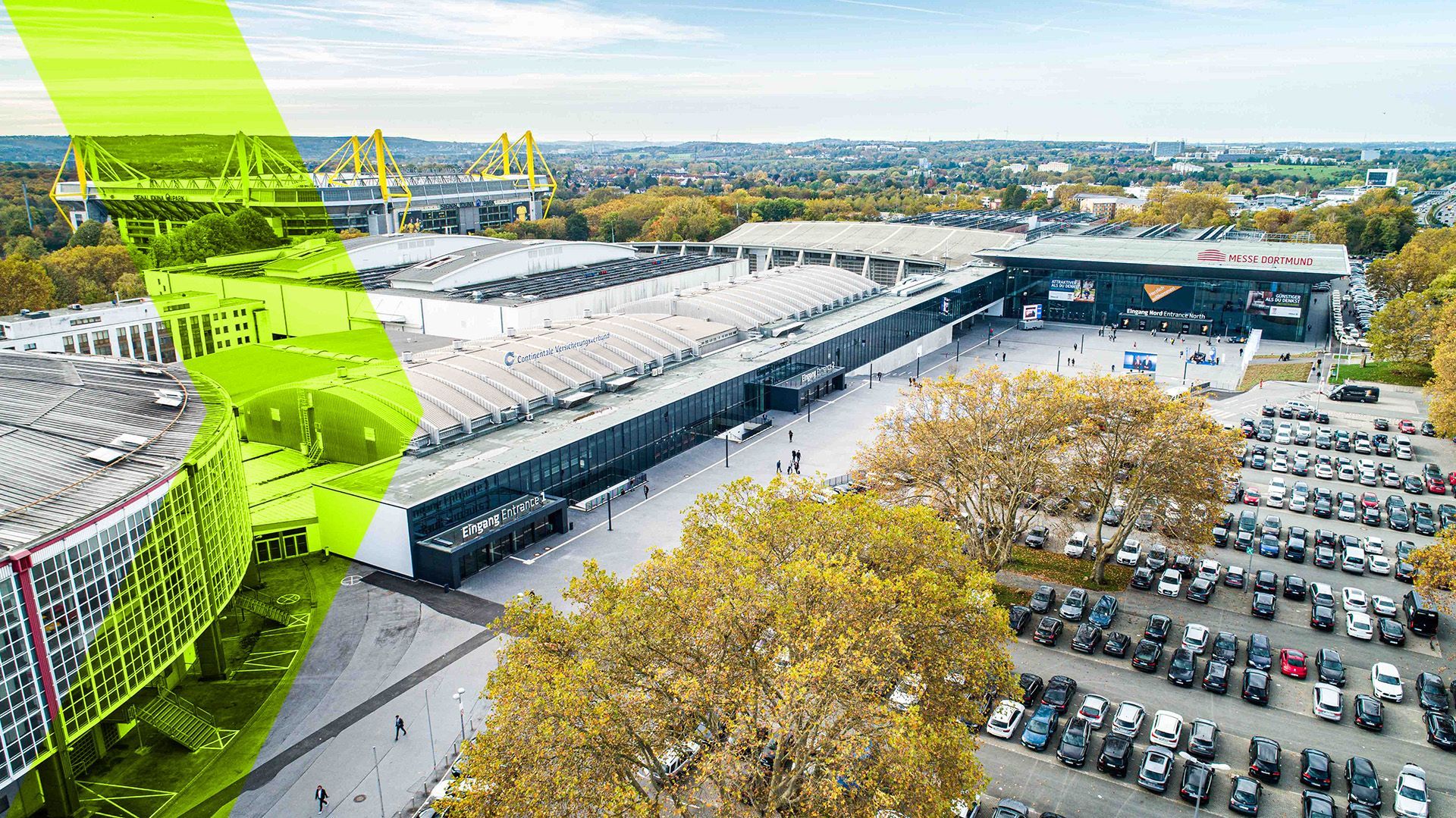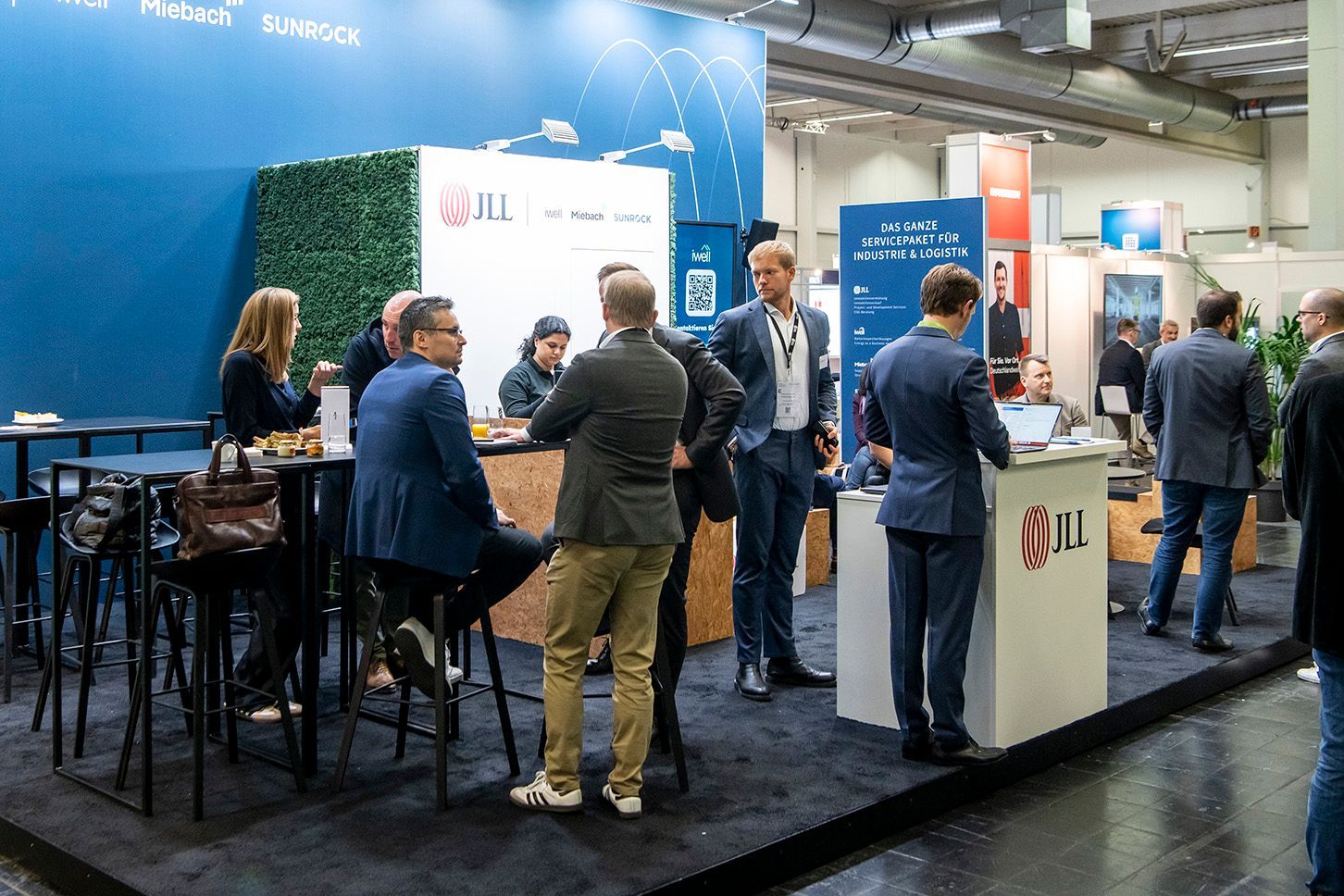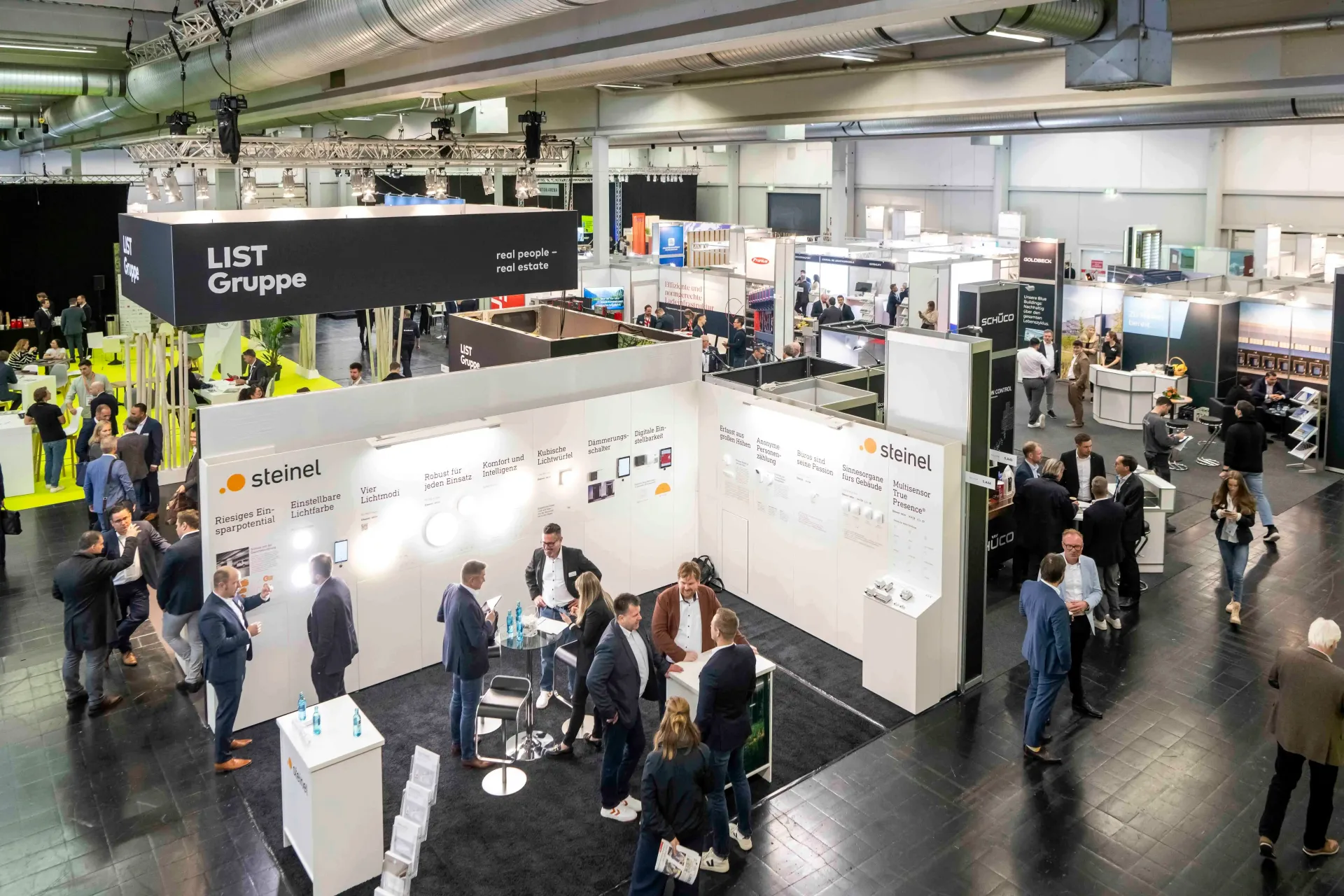First-ever BUILDINX now just 2½ months away!
Preparations at Messe Dortmund now in full swing, with exhibitor numbers growing
The very first BUILDINX – INNOVATIONS FOR LOGISTICS PROPERTIES show will open its doors in just two-and-a-half months' time, bringing together everyone who is anyone in the logistics and industrial real estate world at a superb buyer-meets-seller forum between 19 and 21 November 2024. The businesses consisting of major players and start-ups will be joined by key organisations such as the German Logistics Association (BVL), the German Brownfield Association (DEBV) and the German Local Government Confederation (DStGB) to discuss the future of logistics zoning and settlement.
Dortmund, 9 September 2024 – Experts are still expecting demand to fall temporarily this year in response to the current economic uncertainties and increased cost pressures. However, the study by the Fraunhofer Institute for Integrated Circuits (IIS) in collaboration with Aurelis Real Estate is anticipating a significant increase in demand for logistics space between 2025 and 2028. At the same time, demand for environmentally-friendly logistics properties is increasing due to the growing importance of ESG – a development that is already clearly evident among the exhibitors at BUILDINX:
The pan-European logistics and industrial property developer Baytree Logistics Properties, for example, presented the 'C3' logistics centre in the Bremen freight transport centre for BLG Logistics last year, which – at 82,500 sqm – was the largest contiguous solar array on the roof of a logistics centre and was inaugurated by Germany's Federal Minister of Economic Affairs, Robert Habeck.
As a provider of solar energy systems, ENVIRIA concentrates not just on ground-mounted systems but also on equipping commercial properties – this is simply where the potential for the politically desired green energy transition is greatest. The Frankfurt-based solar power specialist covers the entire value chain – from planning, construction and operation to integration of charging stations and energy storage systems.
CargoBeamer confirms that sustainability can be a driving business model. In combined transport, the company offers intelligent solutions for transporting both cranable and non-cranable semi-trailers by rail in an environmentally friendly manner using its terminals. With CargoBeamer, up to 38 semi-trailers can be loaded horizontally onto a goods train at the same time thanks to terminals which are one-of-a-kind worldwide.
In view of the increased energy costs, KÜBLER offers particularly energy-saving bay heating technology, with the company claiming its infrared technology offers significant benefits in this segment as it requires less energy than conventional bay heating systems.
Rudolf HÖRMANN specialises in construction of agricultural and commercial buildings. Sustainability is also in high demand from customers here, with solar power systems no longer a rarity on the roofs of logistics properties. The company is also responsible for the construction of the world's largest charging station for electric cars at Merklingen railway station in southern Germany. Sustainable raw materials such as wood are also playing an increasingly important role in construction.
“In future, we might think of logistics properties primarily as power plants! One vision would be that the contribution of logistics properties to energy issues would be at the forefront of new project plans, particularly for local authorities. Logistics will then go from being a problem creator – in terms of energy and land sealing – to being a problem solver,” explains Prof. Alexander Nehm from the Baden-Württemberg Cooperative State University in conversation with the BUILDINX team.
Alexander Handschuh, spokesman for the German Local Government Confederation (DStGB), points also to the location factor to this, saying: “It's clear that, in contrast to other parts of the economy, logistics often places special demands on location which do not in all cases meet with undivided local approval. However, local authorities should realise that logistics companies are attractive, future-proof employers that offer jobs for a broad spectrum of the population, from highly qualified specialists to unskilled workers. Functioning, future-proof logistics is a crucial location factor for Germany and its municipalities.”
All information, updates and developments concerning the show can be found at any time on the show's website, Instagram LinkedIn and via newsletter.



